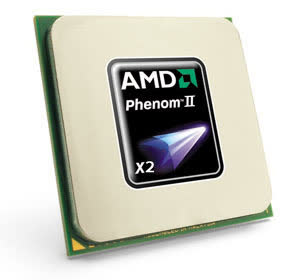

A good exmaple of tha can be seen in the music suite which jumped to 5000s range form the 2700s – almost a two fold increase. A slight increase in clock speed translates into a signficat gain in almost any category. This can be seen by the category scores in pictures below. As such, the processor influences almost every aspect of that systems performance. If the engine of a car is essentially its heart, the processor can also be referred to as the heart of a computer system. The processor was run at its default speed of 2.6 GHz at 95W – a little more than double than that of the 610e. Phenom II 810 X4 will be used as a comparison to the 610e.

If you like experimenting with BIOS, you will like duplicated Clear CMOS jumpers: one is traditionally installed near the BIOS chip, while the other is on the rear panel. What concerns formal excesses, we can mention only a POST indicator, power and reset buttons on the board, five fan headers, and an additional power connector for graphics cards (for powerful solutions that don't have own power connectors to be plugged directly to a PSU). AMD is targeting Intel’s G41 with this 785G, and by simply by adding 8-channel LPCM and UVD 2.0 support it is no longer at a feature deficit for the HTPC audience. It's a utilitarian and relatively inexpensive model. However, this motherboard has no "daring" solutions like remote chipset heatsinks or other DFI's experiments.

Finally, this one is a model from the well-known DFI which has finally made it to the Russian market. Secondly, this motherboard has three PCI slots, is based on a discrete chipset, and has other signs of a product for conservative users of classic configurations. As our tests have confirmed, DDR2-1066 is not much slower than DDR3-1333 in case of Phenom II 700/900 with large caches. That is, it's designed for users willing to keep their high-capacity memory kits. That's why we decided to review an ideologically different motherboard this time. But it's a good example that these chipsets were designed for the future.

This provides no bonuses (except for the undocumented CrossFire support on motherboards with AMD 770), of course. For example, all PCI Express lanes in these chipsets conform to the second version of the standard, while Intel and NVIDIA have even newer models support PCIE 2.0 only for graphics ports. However, it doesn't mean they are outdated in terms of technical specifications. Some of you may be confused by the fact that Northbridges in AMD 770, 790X and 790FX were designed almost two years ago. On the contrary, since Phenom II Socket AM3 processors are compatible with both DDR2 and DDR3 memory, users have lots of options. However, you may get an impression that the AMD's modern platform is not the best choice for users in need of a classic discrete configuration. For example, ASUS M4A785TD-V EVO or Gigabyte MA785GT-UD3H. Some of them were quite feature-rich, full-size products suitable for budget configurations with one or two monitors, as well as powerful all-purpose rigs with discrete a graphics card or two. Owing to the launch of the AMD 785G chipset, we've recently paid much attention to motherboards with integrated graphics.


 0 kommentar(er)
0 kommentar(er)
